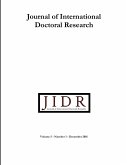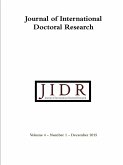The pressures of attaining a doctoral education among university students are well known. This dissertation examines the experience and reality of doctoral psychology students' perceived stress levels among specific years of a clinical psychology five-year doctoral program at one university. The purpose of this quantitative study is to investigate any differences of student's perceived stress and sample characteristics experienced by year in the clinical doctoral psychology program. The amount of perceived stress a psychology doctoral student experiences may depend on differing variables. Psychosocial factors such as education, work, family, and relationships can detract from or contribute to the presence of either positive or negative stress during these years. Factors that may cause distress may also cause eustress. Doctoral students' response to stressors may impact physiological, cognitive, emotional, and behavioral dimensions. A critical issue concerning stress among doctoral students is its effect on learning and whether students will complete their doctoral program. The goal of this study is to increase knowledge of doctoral students' quality of life during the doctoral process and determine the impact of stress on academic achievement. The findings of this study show that there is no relationship between a set of demographic predictor variables (gender, age, marital/parental status, and year in doctoral program) and the level of stress due to academic concerns, family/financial concerns, or environmental concerns for doctoral students, however, a significant relationship was found between these same predictor variables and level of stress as measured by the Demand and Coping Scale. This study's results may contribute to greater understanding and support from program faculty, and help doctoral students set realistic priorities for balancing study, work and family, and reduce doctoral program attrition rates.
Bitte wählen Sie Ihr Anliegen aus.
Rechnungen
Retourenschein anfordern
Bestellstatus
Storno









